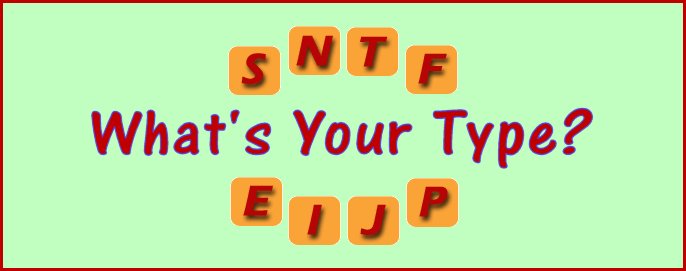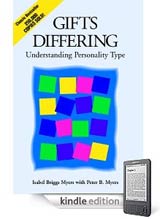
Is there any value to learning your Myers-Briggs?
Millions of people have taken the Myers Briggs, MBTI test and learned which box of the 16 types they fit into. Many took it to satisfy an entertainment curiosity, similar to finding out your Zodiac sign and what is your horoscope. A year later, however, many of these same people have trouble remembering what their type is. “I think I’m an EQSV or something like that” is the kind of comment you might hear at a party where the topic of “What’s your type” comes up. Very little is retained about what exactly were the 4 letters, nor its significance.
More than a fun horoscope
But there are relevant, practical reasons for not only remembering one’s MBTI letters but also what the letters interpret. “Know Thyself” is a mandate for a good life that stretches back to ancient Greek philosophers and continues to be relevant. It is about learning your strengths, learning your weaknesses, and uncovering your blind spots.
A corollary to Knowing Thyself is “knowing and understanding others” which begins by understanding the nature of your type and how it is different from the 15 other types of normal personalities that are different from yours.
Conventional psychology suggests there is a singular standard of personality, a perfect human that is the benchmark to judge a person’s degree of emotional and mental wellness. As a set of ideals no one can get a perfect score; we all fall short on one or more of the desirable traits of perfection. The model of 16 types provides a more accurate standard; 16 unique paths to greatness vs only one. That is why the Myers-Briggs has remained so popular since its inception over 80 years ago.
Myers was a forerunner in recognizing the value of diversity in studying and describing 16 unique patterns of personality, each with a special set of gifts.
The 4 letters of the MBTI type introduce 4 critical areas of self-knowledge you need to acquire and 4 critical ways that other person’s areas of excellence are different from your own.

How Your Brain Focuses its Energy


The first letter of the Myers-Briggs Type code indicates which cognitive energy orientation allows you to do your best. Is it your Introverted nature (I) or is it your Extraverted (E) nature? You have both kinds of faculties, but one is dominant and is the source of most of your “best work.” The other nature plays an important, but supplementary role. In one sense this supplementary nature is a growth opportunity, an opportunity to develop more skill and comfort in using what this dimension offers.
Understanding this dance of opposites should also help cure an arrogance you have; thinking that your way (whether an Introvert or Extravert) is the right way people ought to be.
The direction of your energy orientation is a component of how you best learn; it is essential that you do not lose sight of building on your strengths.
How your Brain Perceives Understandings


The second letter in the MBTI code refers to the two approaches people use to grasp essential understandings of the world around them and of useful information in general. Sensing (S) as the word suggests involves using our 6 senses to gather information. It is present-oriented and data cataloged into our reservoir of experiences. Intuition (I) is interpretation-oriented, more conceptual. It gathers pieces of information together to form new or broader conclusions about things. It allows us to forecast into the future.
All humans have both these mental perspectives. However, one or the other is a person’s dominant mental perceiving orientation, with the other quality being supportive. This has a significant impact in how a person best learns, as well as the manner in which the person interacts with others and the world around them.
You may have observed these differences in a group of people discussing a particular subject. One person focusing on specific and clear facts, the “what is” of the present. Another person focusing on grasping the larger meaning or future consequences, the “what might be” when all these facts are put together.
While you will have a preference favoring one of these two keyways of perceiving information, it is important you learn how to fruitfully employ both systems and to be able to converse in both “languages” in your communications with others.
How your Brain Makes Conclusions or Judgements


The third letter of the Myers-Briggs code refers to the two different mental attitudes in making decisions and forming conclusions about the nature of things and people. It governs how we decide what to do with the information gained from our perceiving mental perspectives.
One is strongly tied to our emotional responses; it is an instant response drawn from our storehouse of values and experience. It is our Feeling (F) nature.
An opposite way of forming conclusions and making decisions is more deliberate, carefully putting information together in a logical manner to make conclusions and decisions. It is our Thinking (T) nature and when it is best operating it tries to divorce itself from emotions and signals coming from our Feeling nature.
Most likely due to biological differences, but sometimes early experiences, people have a bias towards one or the other of these Judging processes. They put a good deal of trust in one more than the other. This greatly affects their conclusions and how they approach others and situations.
Many things and situations we encounter activate both Feeling and Thinking. It is why we sometimes find ourselves in “two minds” about what to do in a situation. It is also how, sometimes, a person’s Feeling nature corrupts the soundness of their Thinking nature. Conversely, our Thinking nature can smother our instinctive understandings that arise from our Feeling nature.
Understanding how to best manage your own mental and emotional conflicts stemming from these competing systems of making decisions is important to your own wellness and human effectiveness. It is also important to understand these mental attitudes in relating to other people productively.
Understanding Your Temperament Style


The 4th letter of the Myers-Briggs MBTI code refers to a psychological characteristic Myers inferred from Carl Jung’s theory of Personality Types. It indicates your style of dealing with/relating with the Outside World. One is named a Judging (J) style, oriented towards closure, organization, planning, or in some fashion managing things and/or people. The other is termed a Perceiving (P) style, that typically results in an open, adaptable, flexible style of relating to the things and people found in the outside world.
Whichever is your characteristic style can be a double-edged sword. It can be a factor that makes a significant contribution to your success in work and in other endeavors. Or it can be a contributor to when things go wrong, a key to a major weakness in how you approach matters and people.
It is important that you understand aspects of your particular style, knowing when to rely upon it and knowing when a situation requires you abandon your natural inclination. Like the old Kenny Rogers song – The Gambler: “Knowing when to hold, knowing when to fold.”
Knowing your preferred style is also critical in relationships with others. There will be times when a difference in your style compared to another person will be a source of conflict or an impediment to working together or getting along. Learning how to bridge or negotiate around these differences is am important skill to acquire.
Gifts Differing: Understanding Personality Type
– Kindle eBook – .
Links to more articles to learn more about Myers-Briggs MBTI personality type
Take our self-scoring MBTI test
Learn more about J and P Personality Types
Discover which Myers-Briggs letter is your Super Power

